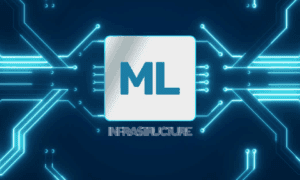Blockchain technology utilized distributed ledgers to provide more secure and transparent transactions across every industry – and big data is among the latest sectors to see exciting potential. Artificial Intelligence and Machine Learning represent unique opportunities for users and businesses to interact, and Blockchain-based cryptocurrencies like Repux seek to bridge the gap between data collectors and these advanced analytics.
Repux is a decentralized Blockchain protocol enabling the transfer of data and value between small to medium businesses and developers. Through the Repux Protocol, enterprises can anonymize and monetize their data, receiving Repux tokens in exchange.
Developers can then create decentralized applications and algorithms utilizing the data, and eventually have businesses pay for use. Thus, creating a sustainable, intermediary-free ecosystem. Before diving into the benefits of Repux, let’s explore what the technology and company are and what their product is looking to do.
How it works?
The core technology can be broken down into four layers. Users interact with the front-facing application layer, consisting of a network of decentralized apps built by third-party developers on Repux’s robust API infrastructure. Beneath the API layer in the Repux Protocol is the data layer, where all data is stored in a decentralized manner via multi-signature cryptography. The data layer is controlled by a scalable decentralized logic layer to ensure data transactions are handled correctly.
At the base is the value layer, which includes Repux tokens, appropriately compensating Repux Protocol users based on economic modeling. This malleable four-layer protocol allows for Repux to be built on across many industries.
A few key advantages set Repux apart from its competition. Repux was developed with the specific data problem facing SMEs in mind. Understanding the lack of access to the massive data pools of large corporations, financial constraints of quality data analysis, and smaller, specialized data sets of smaller enterprises, Repux incentivizes developers with quality “reputations” to build and train decentralized applications employing artificial intelligence and machine learning on the Repux API infrastructure. SMEs are then afforded the ability to monetize their own data and gain access to otherwise costly data analytics, while removing the need for hiring third-party data analysts altogether.
In this way, Repux has the unique ability to capture the intersection of big data, Artificial Intelligence, and Machine Learning, and allows SMEs to integrate substantial Machine Learning data sets of scale only available previously to large corporations. Repux has already launched a live working product, a marketplace designed to anonymize and commission data exchange between SMEs. Repux is led by an impressive team of senior executives and developers with over 75 years of cumulative experience in Big Data, SaaS, and IT.
Current Product Outlook
Another benefit is Repux’s recent channel distribution deal with Workhq. By incorporating Repux into its applications, Workhq will give SMEs the option of monetizing data stored in their cloud-based network directly through Repux. The contract provides access to millions of potential SMEs in China, with others to be announced, with the possibility of building an information base comparable in size to that of Alibaba.
Additional use cases for the Repux Protocol don’t end at SMEs. Repux also has the potential to add value in archival databases, ecommerce, credit scoring, and more, all built on the fundamental Repux Protocol. Overall, Repux allows companies and developers to collaborate on a trustless system where both can make more money. This new ecosystem, which helps protect data and empower development will be crucial for integrating the Blockchain into mainstream business.
This finally creates a new view for what developers can do for a living. No longer would a skilled developer need to work full-time for an organization in order to develop algorithms for them. Rather, top talent can use smart contracts to get the short-term resources they need along with the long-term assurance of payment. Simply put, Repux is shifting the way companies and individuals interact with data and is helping redefine what it means to use big data.
In our current consumer landscape, data is rapidly accumulating and the value of data is rising. Large corporations were previously able to dominate the big data, artificial intelligence, and machine learning with their abundant resources, but the development of Blockchain technology has ushered in advancements to disrupt the industry. Repux is reshaping this space, as SMEs are finally able to monetize and exchange their data.
Third-party developers are incentivized to use these data sets to train Artificial Intelligence and Machine Learning applications and algorithms, and SMEs can gain crucial access to these previously unavailable analytics.



































